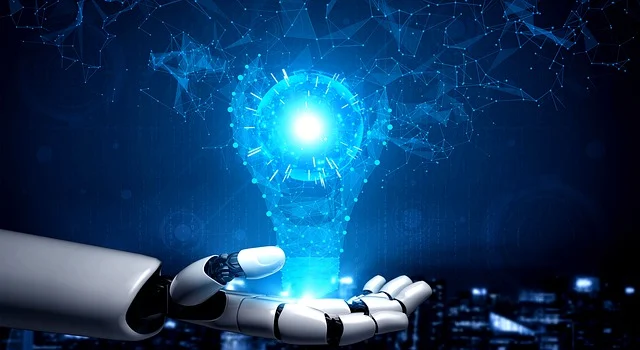Table of Contents
Artificial Intelligence (AI) is changing the world faster than ever, influencing everything from healthcare to finance. This article explores AI&8217;s profound transformative impact across various sectors.
1. Revolutionizing Healthcare
Artificial Intelligence is revolutionizing healthcare by improving diagnostics, personalized treatments, and patient management systems. It can analyze medical images more accurately than human doctors, saving time and lives. AI also helps doctors personalize treatment plans based on individual genetic profiles. It automates administrative tasks, allowing healthcare professionals to focus on patient care.
2. Enhancing Financial Services
AI is revolutionizing the financial industry by improving customer service, fraud detection, and investment management. Chatbots and virtual assistants offer 24/7 support, allowing for efficient query handling. AI systems can analyze transaction data to detect fraudulent activities in real-time, protecting consumers and institutions. This transformation is making financial services more efficient, secure, and customer-friendly.
3. Optimizing Manufacturing Processes
In the manufacturing sector, AI is ushering in the era of smart factories and automated production lines. Advanced algorithms and machine learning models are being used to optimize supply chains, predict equipment failures, and enhance product quality. For instance, predictive maintenance powered by AI can foresee when a machine is likely to fail, allowing maintenance teams to address issues before they cause downtime. This leads to increased productivity and reduced operational costs. AI is also helping manufacturers adapt to changing market demands by analyzing trends and customer preferences, enabling them to produce the right products at the right time. In addition, AI-driven quality control systems can inspect products at a speed and accuracy that human inspectors cannot match, ensuring higher consistency and fewer defects. These improvements not only boost efficiency but also enhance the overall competitiveness of manufacturing firms in today&8217;s fast-paced global market.
4. Redefining Retail Experiences
The retail industry is being transformed by AI, providing more personalized and convenient shopping experiences for customers. Online retailers are utilizing AI algorithms to offer personalized product recommendations based on browsing history, purchase behavior, and even social media activity. This helps consumers find products they are more likely to be interested in, enhancing their shopping experience and increasing sales. Additionally, AI-driven chatbots are available round the clock to assist shoppers with their queries, handle orders, and even provide style advice. These virtual assistants make the shopping process more engaging and efficient. In physical stores, AI is streamlining operations through inventory management systems that predict stock needs and optimize restocking processes. Some retailers are also experimenting with autonomous checkout systems that allow customers to pay for their purchases without having to wait in line, ensuring a smoother and faster shopping experience. By leveraging AI, retailers can better meet customer expectations and stay competitive in a rapidly evolving market.
5. Transforming Education
Education is experiencing a significant transformation with the integration of AI, making learning more personalized and accessible. AI-powered platforms are offering personalized learning experiences by analyzing students&8217; strengths and weaknesses and tailoring educational content to meet their individual needs. These platforms can adapt lessons in real time, ensuring that each student receives the appropriate level of challenge and support. Additionally, AI is aiding teachers by automating administrative tasks such as grading and attendance tracking, freeing up more time for them to focus on teaching and interacting with students. AI technologies are also making education more accessible by providing resources like language translation and speech recognition tools, which can assist students with disabilities or those who speak different languages. Moreover, virtual tutors powered by AI can offer students additional support outside the classroom, helping them understand difficult concepts and complete assignments. As AI continues to evolve, it promises to make education more effective, inclusive, and engaging for learners across the globe.

